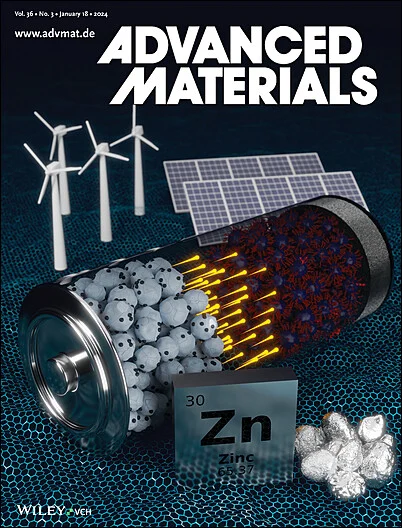Biomaterial-Based Fibrous Implantable Probes for Tissue-Electronics Interface.
IF 27.4
1区 材料科学
Q1 CHEMISTRY, MULTIDISCIPLINARY
引用次数: 0
Abstract
The tissue-electronics interface is key to ensuring the effectiveness and stability of medical devices in vivo. Biomaterial-based fibrous implantable probes represent immense potential in the human tissue-electronics interface, owing to their unique high aspect ratio structural feature, distinguishing flexibility, biocompatibility, and biodegradability. This review elucidates the distinctive characteristics of fibrous probes, highlighting their advantages in terms of adaptability, mechanical compliance, and biocompatibility, making them particularly suitable for implantable applications. The design requirements for implantable fibrous probes are thoroughly analyzed, with a comprehensive summary of their preparation, modification, and assembly techniques. Furthermore, their diverse applications, including electrophysiology, chemical sensing, and optogenetics, are explored to highlight their clinical significance and relevance. The latest advancements in fibrous probes are also reviewed, emphasizing the ongoing challenges in improving long-term stability, enhancing functionality, and achieving large-scale fabrication. By addressing these challenges, biomaterial-based fibrous probes hold the potential to deliver transformative solutions to the current limitations in biomedical technology, paving the way for innovative clinical applications.用于组织-电子界面的生物材料纤维植入式探针。
组织电子接口是保证医疗器械在体内有效性和稳定性的关键。基于生物材料的纤维植入式探针由于其独特的高纵横比结构特征、独特的柔韧性、生物相容性和可生物降解性,在人体组织-电子界面中具有巨大的潜力。这篇综述阐述了纤维探针的独特特性,强调了它们在适应性、机械顺应性和生物相容性方面的优势,使它们特别适合植入式应用。深入分析了可植入纤维探针的设计要求,并对其制备、修改和组装技术进行了全面总结。此外,他们的不同应用,包括电生理学,化学传感和光遗传学,探索突出其临床意义和相关性。综述了纤维探针的最新进展,强调了在提高长期稳定性、增强功能和实现大规模制造方面的持续挑战。通过解决这些挑战,基于生物材料的纤维探针有可能为当前生物医学技术的局限性提供变革性的解决方案,为创新的临床应用铺平道路。
本文章由计算机程序翻译,如有差异,请以英文原文为准。
求助全文
约1分钟内获得全文
求助全文
来源期刊

Advanced Materials
工程技术-材料科学:综合
CiteScore
43.00
自引率
4.10%
发文量
2182
审稿时长
2 months
期刊介绍:
Advanced Materials, one of the world's most prestigious journals and the foundation of the Advanced portfolio, is the home of choice for best-in-class materials science for more than 30 years. Following this fast-growing and interdisciplinary field, we are considering and publishing the most important discoveries on any and all materials from materials scientists, chemists, physicists, engineers as well as health and life scientists and bringing you the latest results and trends in modern materials-related research every week.
 求助内容:
求助内容: 应助结果提醒方式:
应助结果提醒方式:


